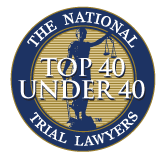213-375-3775
FREE CONSULTATIONS
Legality of DUI Checkpoints in Los Angeles  Many clients who get charged with a DUI as a result of a checkpoint ask: “How are DUI checkpoints legal?” Some want to challenge the checkpoint under theories of entrapment, and others argue that checkpoints are unconstitutional. However, the Supreme Court has spoken to the constitutionality of police checkpoints. Unfortunately, for the client, DUI checkpoints are generally constitutional. However, it is important for everyone to understand why they are constitutional, because it helps to paint a broader picture about our constitutional rights, as a whole. After all, these checkpoints stop everyone, without any individualized suspicion of wrongdoing. Don’t people have a right to be left alone by the police if they are not breaking the law? Generally, the Fourth Amendment to the U.S. Constitution does protect your right not to be searched or seized without probable cause. Specifically, the Fourth Amendment protects you from “unreasonable searches and seizures.” A “search” occurs when the government violates a reasonable expectation of privacy. A “seizure” occurs when the government’s action would lead a reasonable person to believe they are not free to leave. It has been argued that police checkpoints constitute both a search and a seizure, but the Supreme Court has carved out an exception for certain checkpoints. First, it is important to note that police can stop your car as long as they have probable cause to believe that you have violated the law. Probable cause can occur in many different ways. The most common scenario is that an officer sees you violate a vehicle code. However, even anonymous tips can serve as probable cause if that tip is corroborated or proven sufficiently trustworthy. What is the scope of the DUI checkpoint exception? In 1990, the Supreme Court handed down a 6-3 decision in a case called Michigan v. SItz. The court held that the DUI checkpoints in that case met the Fourth Amendment standard of reasonable search and seizure. Although the police did not have probable cause to stop every car that came through the checkpoint, the Court reasoned that Michigan had a substantial government interest in preventing drunk driving. Performing a non-discriminatory DUI checkpoint was a rationally related technique to preventing drunk driving. The Court also mentioned that drivers were only stopped for a brief moment, and that the government intrusion was slight. In balancing the dangers of drunk driving versus this minimal intrusion, the Court found that DUI checkpoints are constitutional. Are there instances where checkpoints are not constitutional? It’s important to note the decision in Michigan v. Sitz was a narrow one. The decision does not authorize police to set up checkpoints purely for investigative purposes. This means that the police cannot set up a checkpoint for the purpose of finding illegal narcotics. The difference between that type of checkpoint and a DUI checkpoint is the government interest. While the government does have an interest in ensuring that people on the road are not transporting narcotics, this interest does not warrant the intrusion of stopping cars for that purpose. Further, any checkpoint that gives police unfettered discretion will not likely be upheld. The Court in Sitz only ruled as to the constitutionality of the initial stop associated with a checkpoint, but further explained that detention for longer investigation such as sobriety testing may require an individualized suspicion standard. Remember, however, once police see objective signs of impairment, they have probable cause to investigate further and to detain you for longer. What is the difference between “saturation patrols” and DUI checkpoints? Saturation patrols are not checkpoints. Saturation patrols simply refer to concentrated, targeted efforts to catch people driving under the influence. Police focus on cars that are speeding and swerving; which gives them probable cause to stop the vehicle. Saturation patrols are legal in all 50 states. IF YOU OR A LOVED ONE HAS BEEN ARRESTED OR CHARGED WITH A CRIME, CONTACT THE LAW OFFICES OF NICHOLAS LONCAR NOW FOR A FREE CONSULTATION WITH A LOS ANGELES CRIMINAL DEFENSE LAWYER. 213-375-3775 LA SUPERIOR COURT | LAPD | LA DISTRICT ATTORNEY | LA PUBLIC DEFENDER | LA LAW LIBRARY
0 Comments
Your comment will be posted after it is approved.
Leave a Reply. |
"Mr. Loncar has a great reputation in the legal community. I highly endorse his service to anyone in need of legal help."
-Attorney Andrew Leone HOME | ATTORNEY PROFILE | PRACTICE AREAS | KNOW YOUR RIGHTS | BLOG | CONTACT | PASSION AND PERSONAL SERVICE The Law Offices of Nicholas Loncar, located on Wilshire Boulevard in Los Angeles, provide tenacious, passionate and affordable criminal defense to clients throughout Southern California. If you're facing criminal charges or are under investigation, contact our office today for a free consultation. LA Attorney Nicholas Loncar is deeply committed to criminal defense and fights hard for his clients in every case.
Law Offices of Nicholas Loncar
1200 Wilshire Blvd
Los Angeles,
CA
90017
Phone: 213-375-3775
URL of Map Useful LA Criminal Defense Resources:
LA Inmate Locator LA Superior Court LAPD Online LA County Law Library LA Felony Bail Schedule LA Misdemeanor Bail Schedule |
LOS ANGELES CRIMINAL DEFENSE ATTORNEY | ATTORNEY PROFILE | PRACTICE AREAS | KNOW YOUR RIGHTS | BLOG | CONTACT
LEGAL DISCLAIMER: The information above is attorney advertisement and is provided for informational purposes only. This site and its
contents do not provide any legal advice nor does receipt of this information create an attorney-client relationship.
© 2022 by the Law Offices of Nicholas M. Loncar. All rights reserved. Sitemap
contents do not provide any legal advice nor does receipt of this information create an attorney-client relationship.
© 2022 by the Law Offices of Nicholas M. Loncar. All rights reserved. Sitemap
